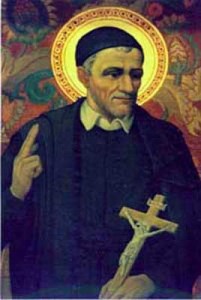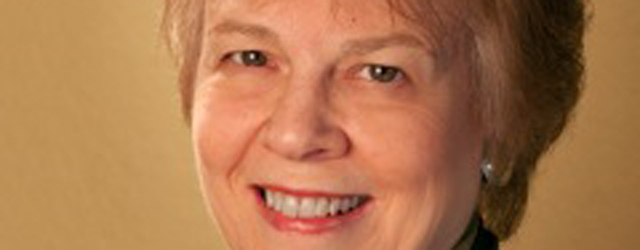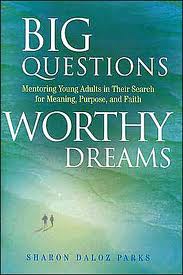Vincent and Sharon Daloz Parks:
Mentoring the Next Generation of Leaders
.
Sharon Daloz Parks serves on the faculty of the Executive Leadership Program at Seattle University, and formerly served as Associate Director and is a faculty member of the Whidbey Institute in Clinton, Washington. She previously held faculty and research positions in leadership and ethics at Harvard University’s schools of divinity and business, at the Kennedy School of Government, and at the Weston Jesuit School of Theology. She began her career in higher education as a residence hall director and later completed her doctoral work in theology and human development.
In addition to her 2000 book, Big Questions, Worthy Dreams, which discusses mentoring in higher education, Daloz Parks wrote Leadership Can Be Taught, a study of the teaching methods of Ronald Heifetz, co-founder of the Center for Public Leadership at Harvard University. She co-authored Can Ethics Be Taught?: Perspectives, Approaches, and Challenges at Harvard Business School and Common Fire: Leading Lives of Commitment in a Complex World.
Drawing on her more than 30 years of professional engagement with young adults in varying capacities, Daloz Parks suggests that in today’s rapidly changing and evolving global village, we need not only to be concerned about education and employment for young adults, but with their life of faith, understood in the broad sense of how they make meaning. She writes:
For each of these young adults – and as a consequence, for all of us – there is much at stake in how they are heard, understood, and met by the adult world in which they are seeking participation, purpose meaning, and a faith to live by….I continue to watch young adults reach for a place of belonging, integrity, and contribution that can anchor meaningful hope in themselves. (2000, 3)
Mentoring the Next Generation
Daloz Parks centers her approach to mentoring on the historical image of “the commons” in all human societies – that place of intersection at the center of communal life. She suggests that today’s commons is “global in scope and personal in impact,” as well as “complex, diverse and morally ambiguous.” She says today’s young adults need people prepared to help them be “citizen leaders in this new commons.”
To address this need for the preparation of young people as citizen leaders, Daloz Parks calls for a restoration of mentoring. She writes:
The power of mentoring relationships is that they help anchor the vision of the potential self. They beckon the self into being and, in so doing, help to ground the place of commitment within relativism….offering both insight and emotional support (ibid. 81).
Daloz Parks says mentors provide young adults with recognition, support, challenge, and inspiration. Through skillful dialogue mentors pose questions “that go straight to the heart and the heart of the matter” (ibid. 132).
Vincent de Paul as Mentor
With these observations by Daloz Parks on today’s young adults and the importance of mentoring as backdrop, we now look at Vincent de Paul and his approach to the role of mentor. We will be guided in this reflection by Alison Forrestal, PhD., an historian and lecturer at the National University of Ireland, Galway, who has researched a portrait of Vincent as mentor.
It is important to recall that Vincent’s time was much like ours, one rampant with the scourge of war and plagues, with uncertainty, with economic turmoil. Yet, Vincent was able to pull together an initially small but quickly growing group of young people to respond to the needs of others. As Daloz Parks suggests, Vincent was able to mentor these young people into a community of meaning, purpose and belonging, through his personal interaction with them and the creation of the Congregation of the Mission, the Daughters of Charity, and the Ladies of Charity
Forrestal suggests that the “massive and rapid expansion” of Vincentian ministries “required skills of vision, precision and oversight, but also involved the cultivation of capable Congregation workers to govern, organise and, perhaps more importantly, to nurture Congregation members, spiritual values and the Vincentian ethos.” (7) She adds that while “Vincent de Paul did not use the term ‘mentor’ to describe his direction of others but, clearly, he was a mentor to a wide variety of people who undertook different tasks in clerical, religious and lay life.” (8)
As Forrestal notes, Vincent “provided important support and direction to those who became affiliated with his vision and organizations. Those whom Vincent mentored included Louise de Marillac, co-founder and first superior of the Daughters of Charity; as well as large numbers of Ladies of Charity and French bishops.” (7)
Leadership of the newly formed Vincentian congregation required Vincent “to become a wellspring of spiritual and practical support and direction, and the fosterer of collegiality, common purpose, discipline, initiative and confidence,”comments Forestal
As Daloz Parks suggests, Vincent believed his role as a mentor extended beyond professional and interpersonal skills to the development of “faith” as he understood it. Forrestal describes Vincent’s skill and knowledge of human development and his holistic approach to personal growth. She writes:
“De Paul’s role as mentor… was colored profoundly by the spiritual values and goals that he envisaged to be central to Christian vocations and to Christian engagement with the world. Indeed, we can say that his undeniable prowess as mentor rested on an acute understanding of human psychology and a consistent acceptance of key spiritual principles.” (7)
Forrestal continues: “[H]is methods kept a close eye on both natural or human, and supernatural or divine principles. He did not see these as  opposing but as complementary and co-operative”. (8)
opposing but as complementary and co-operative”. (8)
Daloz Parks offers a contemporary approach to faith and the importance of meaning and purpose in motivation. While some of Vincent’s religious ideas and practices might differ from ours today, Forrestal is clear that Vincent’s sense of faith in the model and teachings of Jesus Christ was central to his approach to mentoring. She writes:
“For Vincent, Christ was the ultimate example of charity: self-giving, suffering, compassionate, but above all, empathetic. So empathetic, in fact, that he stood for all men, but in particular, for the poor, the vulnerable and the helpless. In other words, Christ identified with the poorest of the poor, yet at the same time available for all and present in all humanity. No matter what their status in worldly terms, no matter what their social or moral state, therefore, every person was equal in dignity, according to Vincent de Paul, and worthy of cordial respect. “(9-10)
It was, in fact, this Jesus who, in a sense, mentored Vincent. “The Christ of charity was therefore the mentor of Vincent de Paul, who sought to form himself in the mould of compassion, zeal, self-giving and service. This meant that he understood mentoring to function in two ways, beyond the practical organisations of the offices in his charitable infrastructure: firstly, the mentor should act as a living example and inspiration to others; and secondly, they should be devoted to helping others to live up to the ideals set by their supreme mentor Christ.” (10)
![]() As for the practical elements of Vincent’s mentorship, Forrestal identifies several of his strategies:
As for the practical elements of Vincent’s mentorship, Forrestal identifies several of his strategies:
“Vincent used a mixture of direct suggestion, warm encouragement and praise….When faced with difficult cases, Vincent de Paul rarely thought the answer lay in changing their environment. Rather, the role of the mentor was to persuade individuals to change from within, so that they were able to deal with whatever circumstances God placed them in. Training the will to virtue, keeping one’s eyes focused on appropriate goals and on models of behavior, and constant support from those with wise and trustworthy intentions, stood at the heart of his conception of formation” (14, 16).
Reflection Questions
When you sit with your deepest self, what do you desire?
Where is the “critical thinking” in your attitude/belief? To whom do you go to test this out?
Vincent recommended having “an interior space,” how do you create this for yourself? How do you invite others to this practice?
.
References:
Daloz Parks, Sharon. Big Questions, Worthy Dreams: Mentoring Young Adults in Their Search for Meaning, Purpose, and Faith. Jossey-Bass. 2000. Used with permission.
Forrestal, Alison Ph.D. (2007) “Vincent de Paul as Mentor,” Vincentian Heritage Journal: Vol. 27: Iss. 2, Article 1. Used with permission.
Available at: http://via.library.depaul.edu/vhj/vol27/iss2/1
Edited by Patricia M. Bombard, BVM, D.Min., Director, Vincent on Leadership: The Hay Project, DePaul University, Chicago, IL USA




